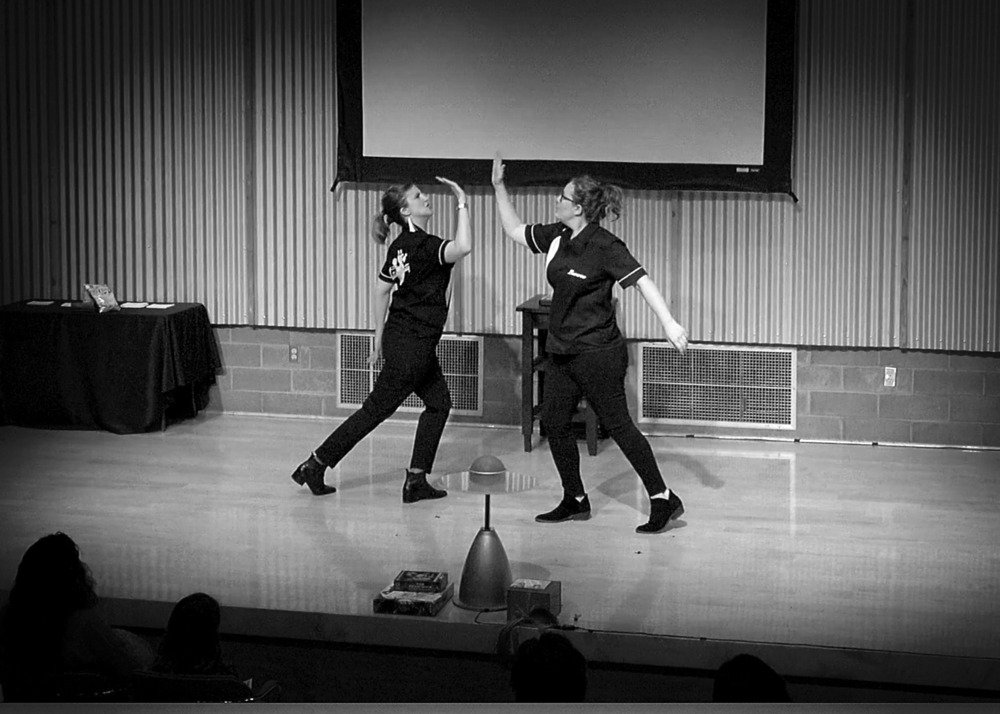
GAME NIGHT
first performed on October 12, 2019
Boston Court Pasadena, Pasadena, CA
performed once in 2019
AUTODUPLICITY
Rachel Beetz, Jennifer Bewerse
Los Angeles, CA
333422223a333422223u333422223t333422223o333422223d333422223u333422223p333422223l333422223i333422223c333422223i333422223t333422223y333422223@333422223g333422223m333422223a333422223i333422223l333422223.333422223c333422223o333422223m
autoduplicity.com
GAME NIGHT
AUTODUPLICITY
“Game Night” was an evening of musical games and games that make music. In creating “Game Night,” we asked ourselves how playing music could evoke other kinds of play, and what might we learn about play from a musical perspective. The resulting concert was a multi-layered event that not only featured musical games, but also used every possible aspect of concert—including multimedia, interactivity, and simultaneity—to experiment with the impact of play.
“Game Night” was structured as a concert with six pieces that were connected by two meta-games. As the audience entered the hall, they were given a “Concert Bingo” card with boxed descriptions ranged from common concert rituals (performers bow, speak, etc.) to common audience happenings (coughing, leaving the room loudly, etc.). As the concert went on, audience members could mark these boxes until they completed a row and called out “Bingo!” to win a prize. One audience member purposefully acted out certain bingo items to win a prize, thus “gaming” the system. To introduce each piece, I created original video game-style videos triggered by a large red gameshow-style button at center stage. Each piece was named as a series of rounds as if part of a larger game. As a visual pun on traditional concert black, we wore black and white custom bowling shirts with our names and “Autoduplicity” across them.
We started with an ice breaker, Cassia Streb’s “Game Time,” a group piece where the audience joins us on stage to compare their shoe lengths and build constellations of interpersonal relationships. We followed with the premiere of Carolyn Chen’s “Good Work,” a kind of charades of childhood playground games mimed throughout the performance space. We then answered questions cued by buzzers in Tim Parkinson’s “Time with People Op. 1.” Then Sean Griffin’s “Pattycake” took the popular clapping game to virtuosic extremes with poetry extolling the value of repetition and trust. After this more intimate moment, we premiered Isaac Shankler’s “The Two-Body Problem,” written for us to play a midi-controller rhythmic video game. The audience joined us again for the final piece to blow glass bottles in John White’s meditative drinking game, “Drinking and Hooting Machine.”
From the initial idea of play, “Game Night” revealed essential truths about games: their ability to create community and interaction, the inherent risk of trusting others to play along, and the storytelling games wrap around our everyday lives.